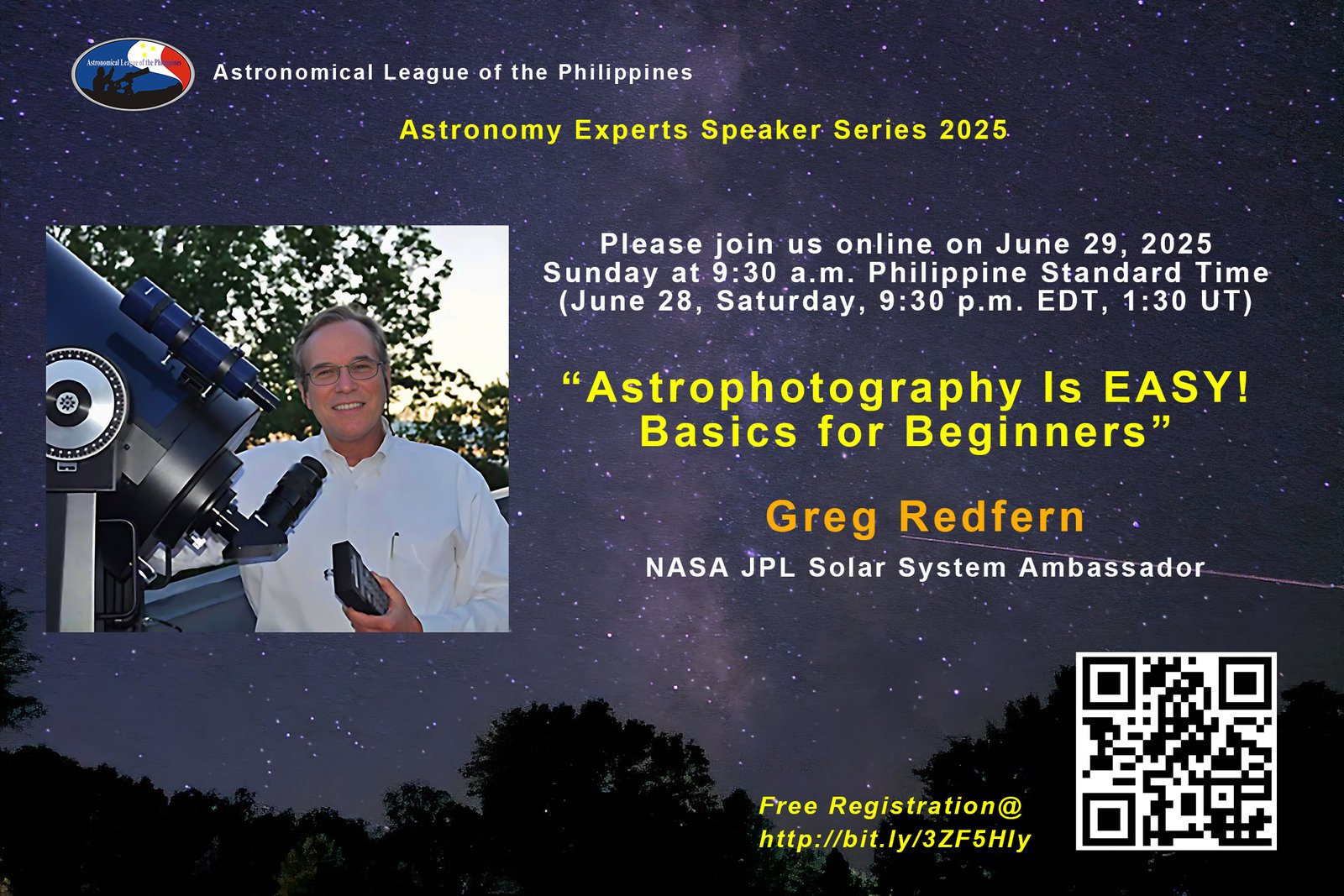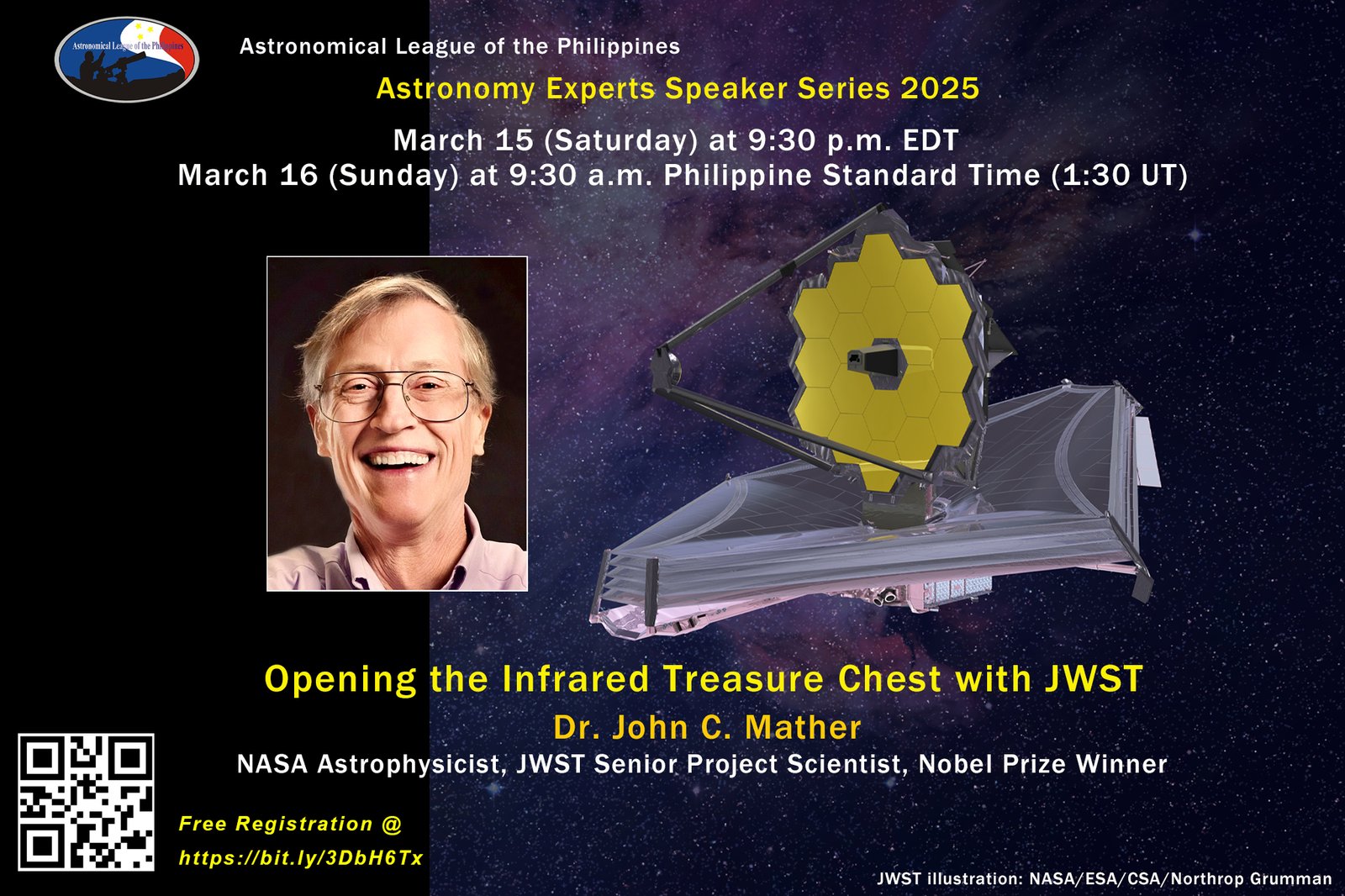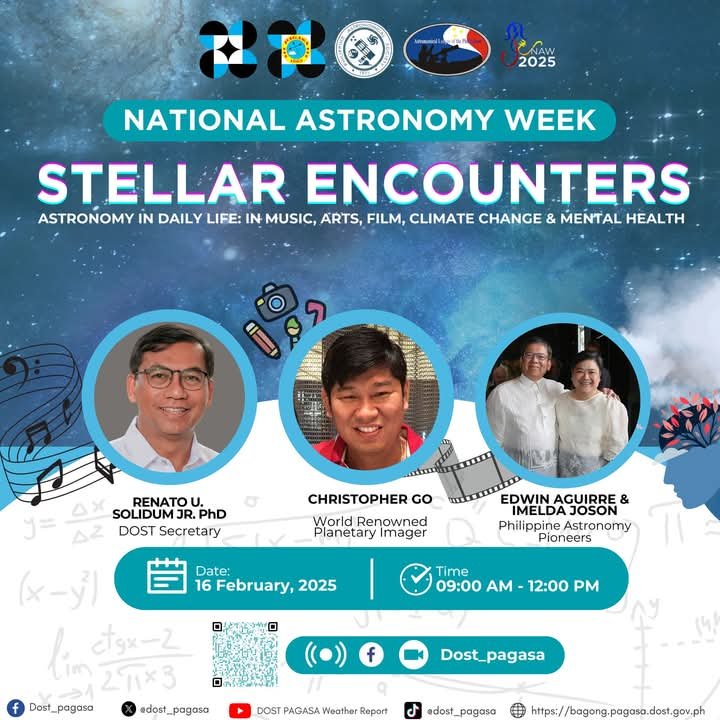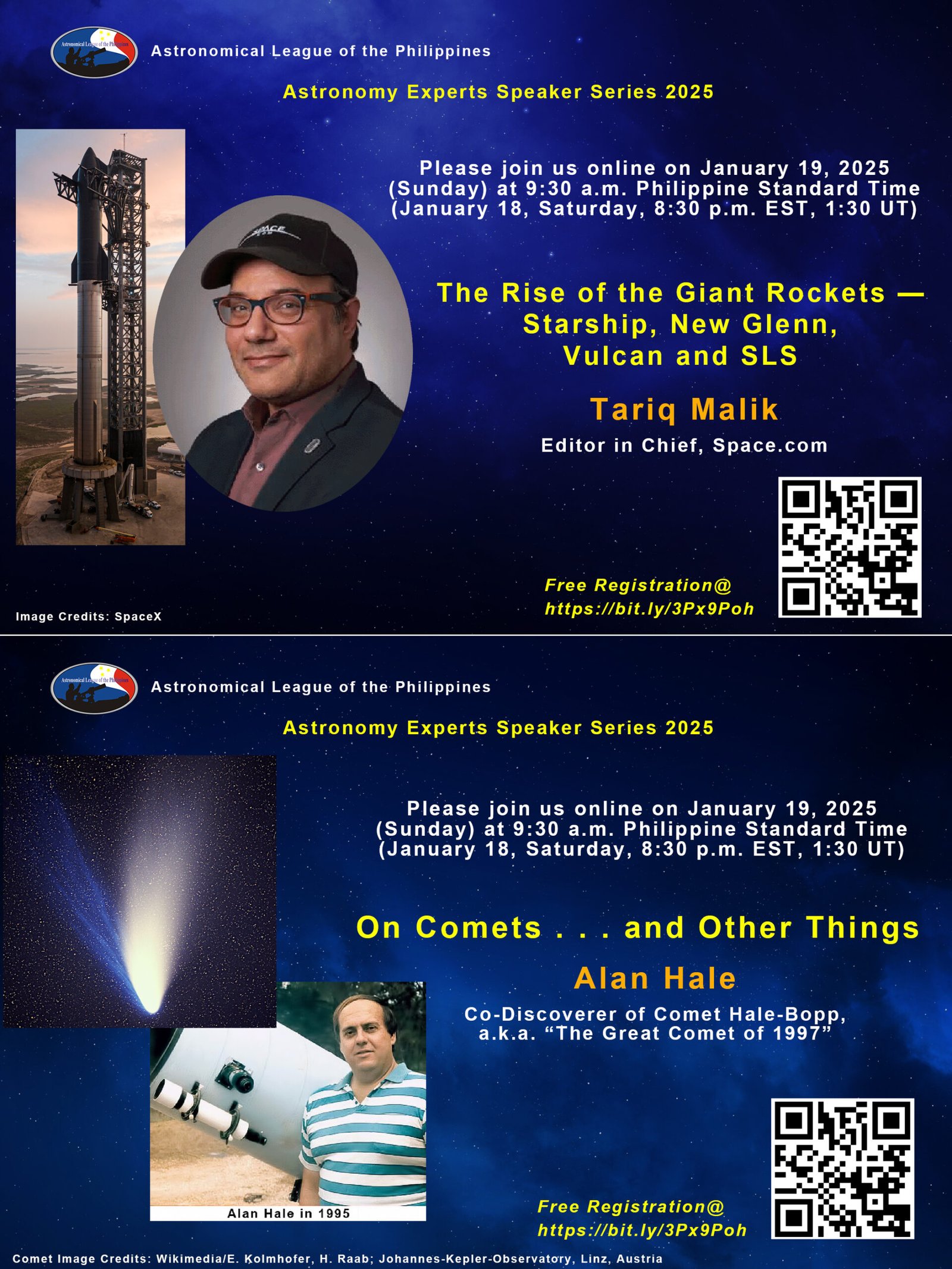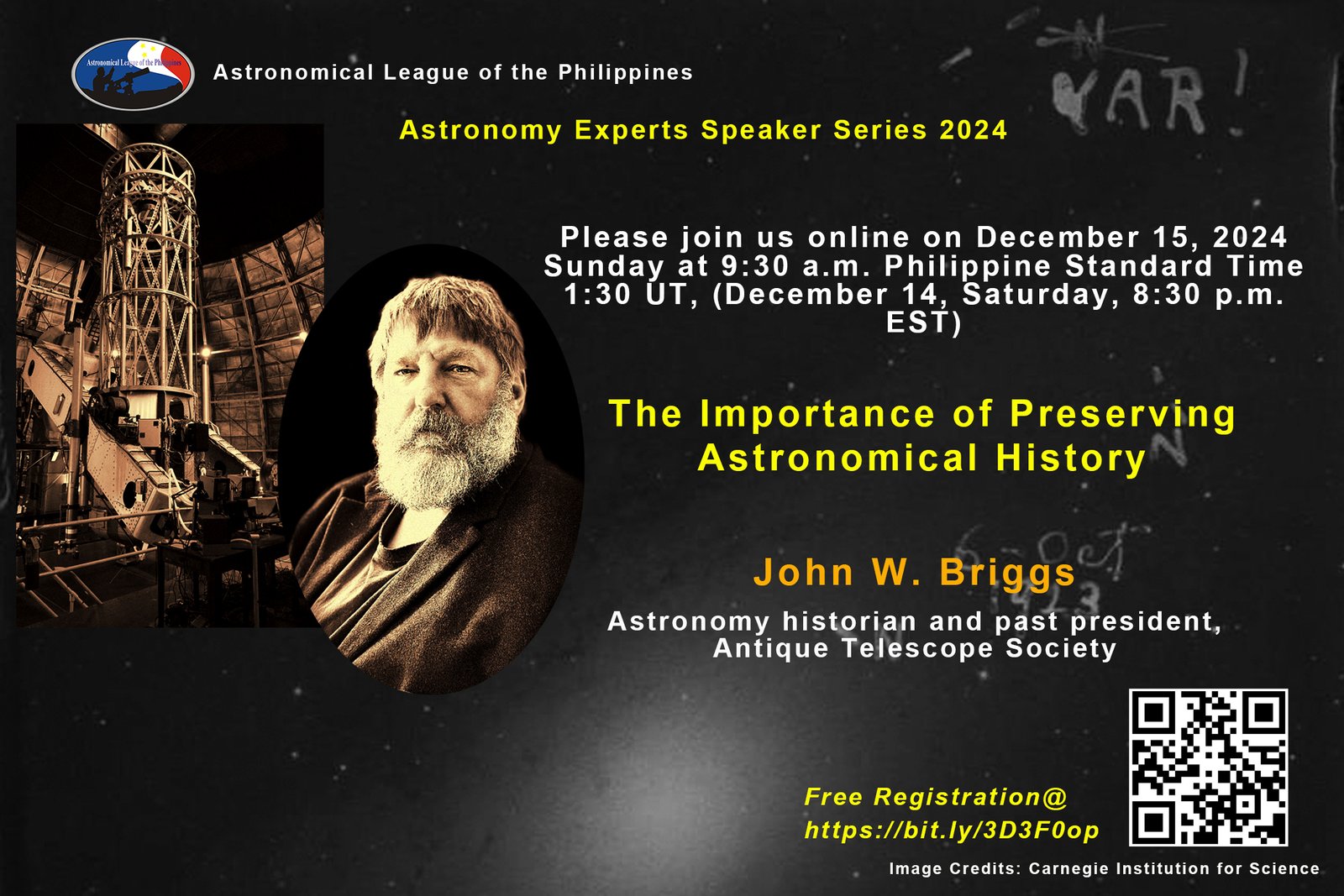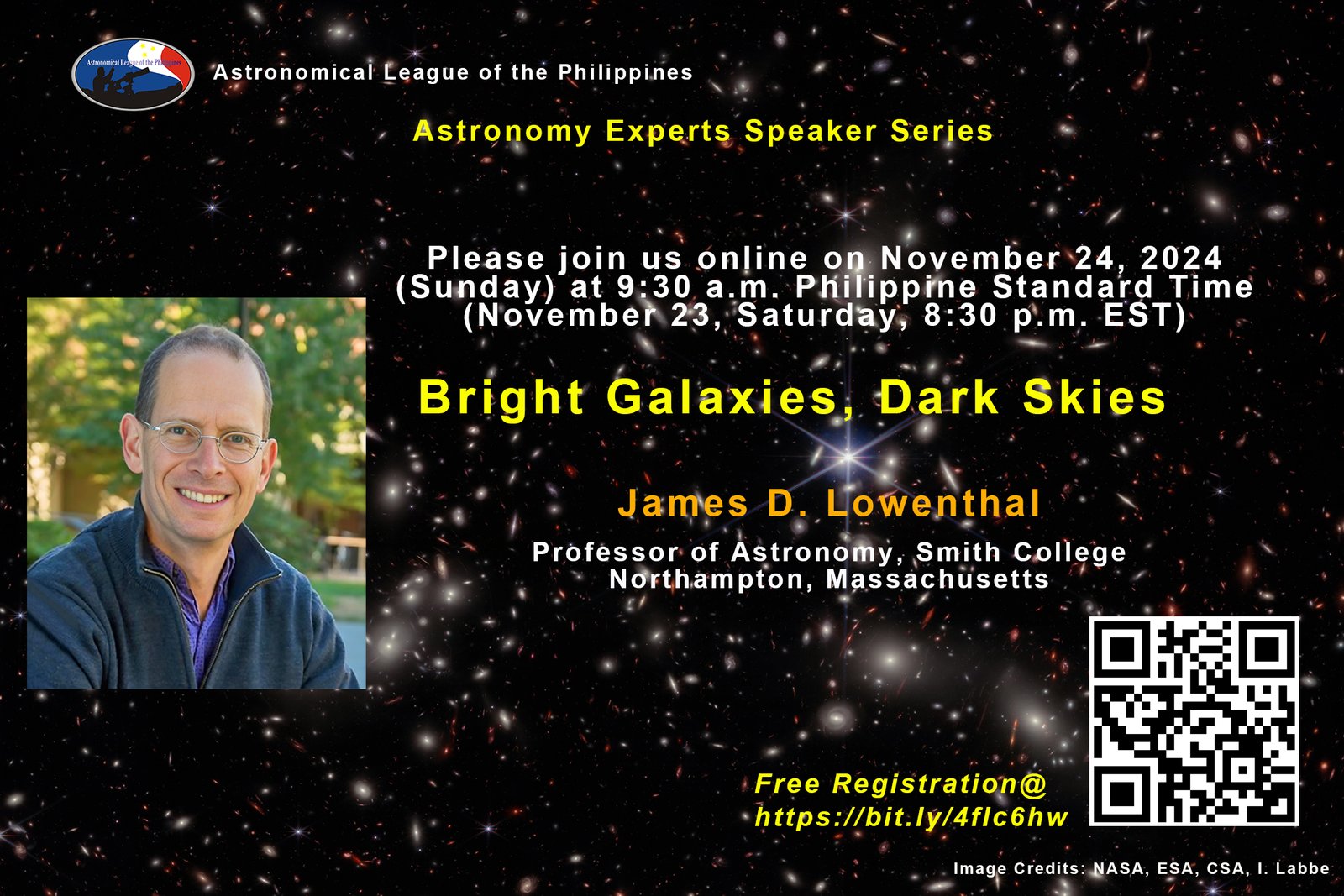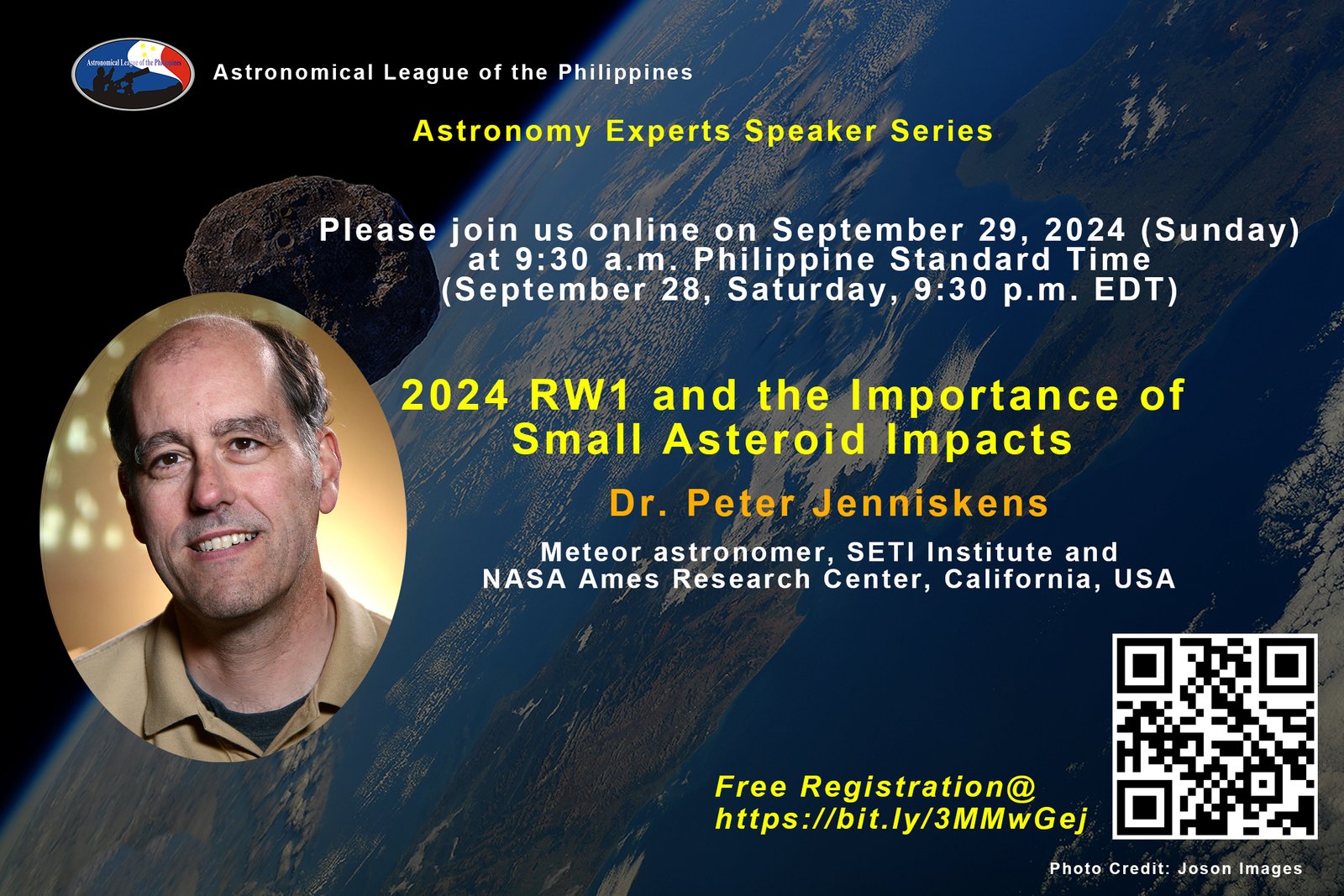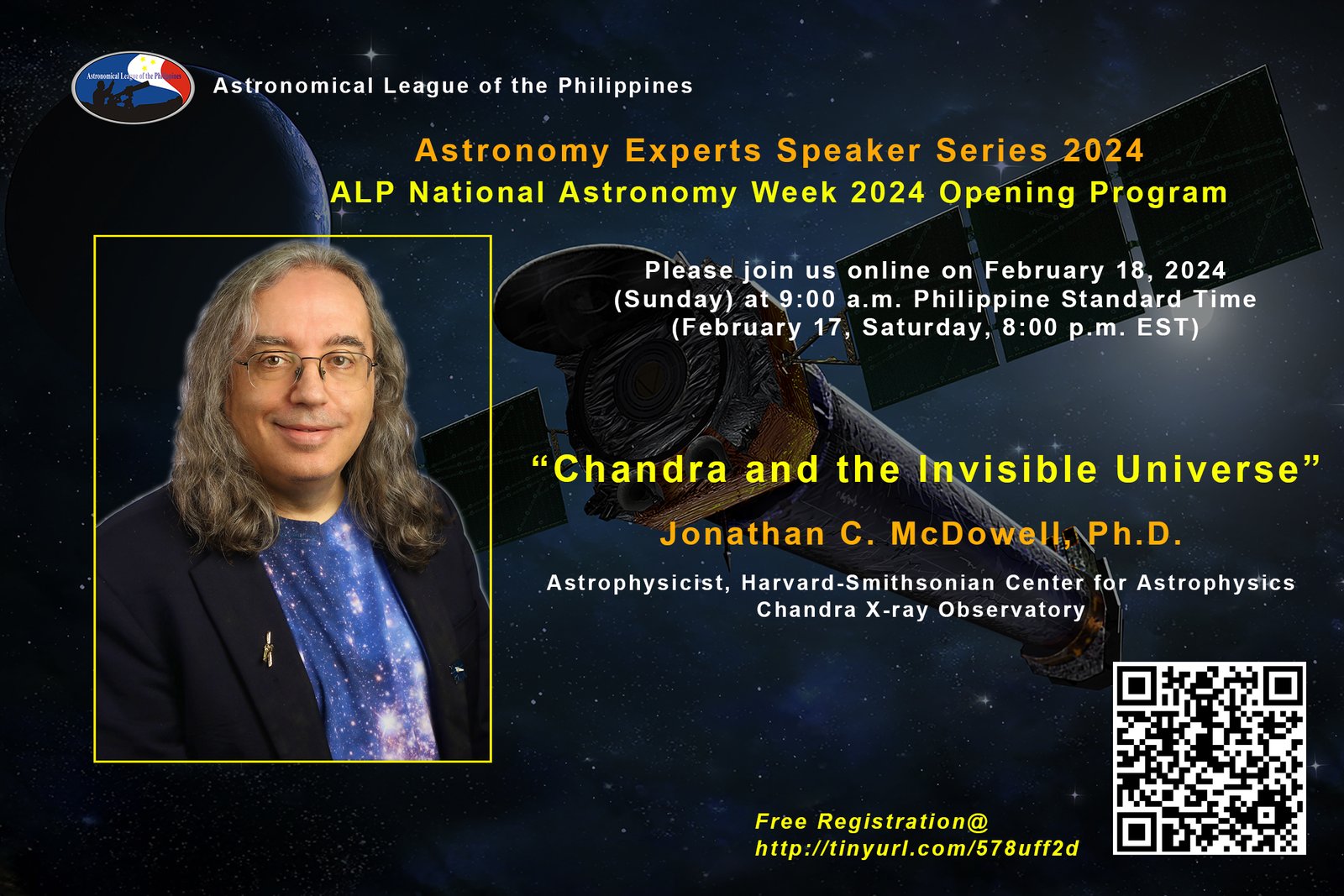The Astronomical League of the Philippines is inviting you to join us online via Zoom on June 29, 2025 Sunday 9:30 a.m. Philippine Standard Time (June 28, Saturday, 9:30 p.m. EDT) for a very interesting talk on “Astrophotography Is EASY! Basics for Beginners” to be given by Greg Redfern, NASA JPL Solar System Ambassador
This engaging presentation will teach the audience the basics on how to photograph the night sky using smartphones and digital cameras. Real images will show the results you can obtain following “Redfern’s Rules of Astrophotography” and basic equipment. You will also learn how astropics can be taken if you are at sea.
Greg Redfern has been an adjunct professor/instructor of astronomy for five different colleges since 1984. A NASA JPL Solar System Ambassador since 2003, he has shared NASA’s missions with audiences in person as well as on television and radio in the Washington, D.C., media market. Greg has also been the space reporter for WTOP Radio since 2006. His personal daily astronomy blog, “What’s Up? The Space Place.com” has had more than 3.74 million views from around the world.
As a writer, Greg has written feature articles for numerous magazines and newspapers and has authored two books — “Cruise Ship Astronomy and Astrophotography” and “Astrophotography Is Easy! Basics For Beginners” — both published by Springer Astronomy as part of its Patrick Moore Practical Astronomy Series.
Greg has been observing and photographing the sky for more than five decades and collecting meteorites for years. He has used telescopes of all kinds and visited observatories, NASA facilities, and geological sites. His astrophotos have appeared in many publications and websites.
Register now for this free Zoom online talk using this link –
or scanning the QR code below

After registration, please check your registered e-mail for the Zoom meeting link. See you!

